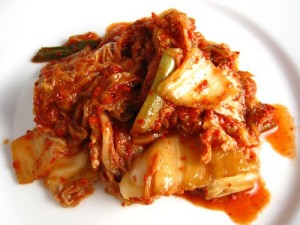Don and Ben start the episode talking about kimchi fermentation and all the cabbage that needed to be washed and salted. The conversation went towards collaborations with fun people that might seem a bit unnatural to outsiders. The guys talk about a few outbreaks including two pathogenic E. coli ones linked to Romaine lettuce and Hep A in blackberries. They then do some listener feedback on foreign objects, bad cleaning and sanitizing machines and chitterlings. Also, bacteria is everywhere.
Food safety recalls are always either too early or too late. If you’re right, it’s always too late. If you’re wrong, it’s always too early.
– Dr. Paul Mead
Food Safety Talk 199: Possum Droppers can be found on iTunes, Overcast or at foodsafetytalk.com
Show notes so you can follow along at home:
- Chris Gunter (@vegetabledoc) / Twitter
- Food Safety Talk 3: Be the Ball (Chris Gunter, Guest) — Food Safety Talk
- Sharpie ✓ Yuge font ✓ Random all caps ✓ Zelensky spelled wrong ✓ Yep, Trump wrote this | Donald Trump’s “I Want Nothing” Note | Know Your Meme
- Applied Ecology | NC State University
- Ben Reading | Applied Ecology | NC State University
- Farm to Table – Understanding and Making Kimchi
- Retail HACCP and Variances | NC State Extension
- Sourdough – Public Science Lab
- Dr Sarah L Desmarais – NC State
- Sara Elnakib, RD, MPH, CHES (Rutgers NJAES)
- Modeling yeast spoilage in cold-filled ready-to-drink beverages with Saccharomyces cerevisiae, Zygosaccharomyces bailii, and Candida lipolytica
- Siobain Duffy Ecology Evolution and Natural Resources
- RStudio
- Outbreak of Hepatitis A Virus Infections Linked to Fresh Blackberries | CDC
- Timeline of Outbreak of Hepatitis A Virus Infections Linked to Fresh Blackberries | CDC
- Map and case count for Outbreak of Hepatitis A Virus Infections Linked to Fresh Blackberries | CDC
- Odds ratio – Wikipedia
- About Us | Fresh Thyme
- Some boxes of Cheese Nips are being recalled – CNN
- Chopped golf balls in hash browns prompts recall
- Outbreak of E. coli Infections | E.coli Infections | November 2019 | E. coli | CDC
- FDA, CDC and other health partners investigated outbreak of E. coli O157:H7 possibly linked to romaine lettuce, outbreak appears to be over | FDA
- FDA hid romaine-related outbreak from public view for more than 6 weeks | Food Safety News
- FDA Discloses New E. Coli Romaine Outbreak After It Ends
- Outbreak Announcement via Tweet – Now, that is Transparency | Marler Blog
- https://foodpolicy.rutgers.edu/docs/pubs/2007_Public%20Response%20to%20the%20Contaminated%20Spinach%20Recall%20of%202006.pdf
- Amazon.com: Setting the Table: The Transforming Power of Hospitality in Business eBook: Danny Meyer: Kindle Store
- Cooler Case Cleaner – Kaivac Cleaning Systems
- Evaluation of data transformations used with the square root and schoolfield models for predicting bacterial growth rate. | Applied and Environmental Microbiology
- https://www.fda.gov/files/food/published/Bad-Bug-Book-2nd-Edition-%28PDF%29.pdf
- Yersinia enterocolitica O:3 Infections in Infants and Children, Associated with the Household Preparation of Chitterlings | NEJM
- https://www.ncbi.nlm.nih.gov/pmc/articles/PMC3375761/pdf/09-1101p1_finalR.pdf
- Carrots and lettuce cause outbreak in Bay – NZ Herald
- Letterkenny (TV series) – Wikipedia
- Urban Dictionary: Chel
- Group Hopes to Prevent “Opossum Dropping” on New Year’s Eve
- Degens | Letterkenny Wikia | FANDOM powered by Wikia
- ‘The World Is Covered by a Thin Layer of Feces’ – Google Search
- Mann Brand/Private Brand U.S. Products – Mann Packaging Product Recall
- Dirty Headphones: Common tech accessory likely to blame for uptick in infections, doctors say | abc11.com
- Fish Poisoning in Travelers: Ciguatera and Scombroid | Travelers’ Health | CDC



 consumers are free from foodborne illnesses.
consumers are free from foodborne illnesses.